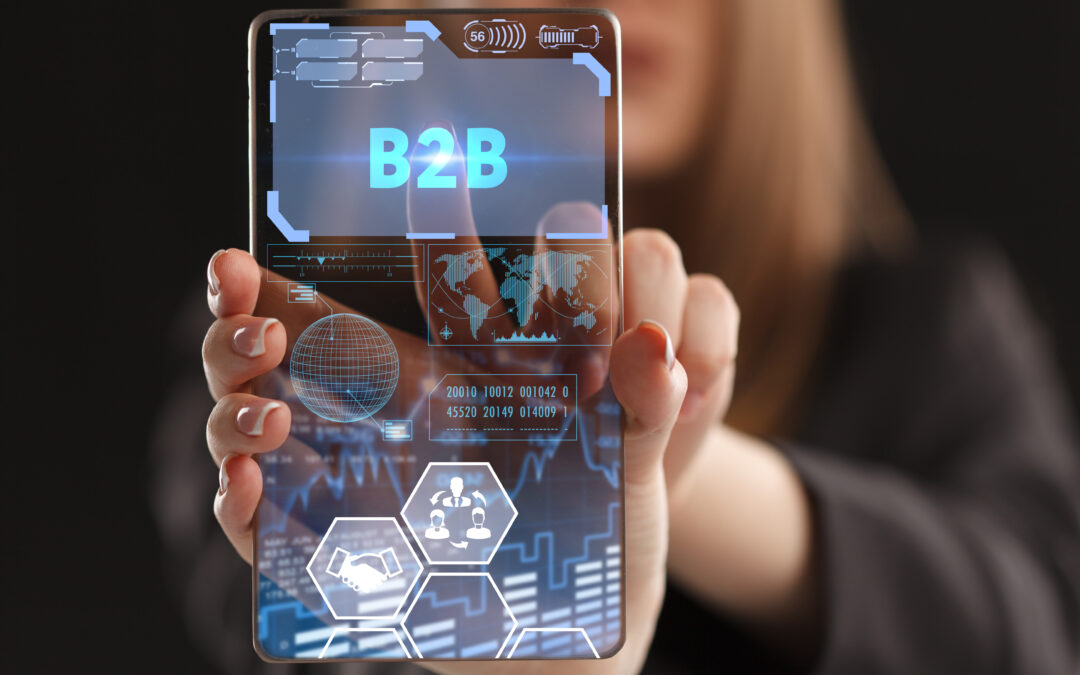Innovation in marketing comes down to finding new solutions to old problems.
Recent data suggests that even with all the modern conveniences that allow us unprecedented access to our target audiences, many B2B marketers find themselves losing valuable prospects in the mid-bottom funnel, struggling to bridge the gap between leads and conversions.
As a marketing professional, the gap between leads and conversions is likely a familiar problem to you. What may be somewhat new is the dizzying pace at which new solutions are being developed. It’s apparent that staying ahead of new tools and trends in B2B marketing is a top priority to remain competitive in an ever-more-crowded field.
At LSC, we’re embracing the newest trends in digital marketing, harnessing marketing automation through AI tools, and constantly developing our strategic approaches to account-based marketing (ABM) as our first – but not our only – marketing priorities in 2023 and beyond. In this article, we’ll look at the importance of a comprehensive top-to-bottom sales funnel and relationship-building strategy, driven by the newest developments in marketing technology.
Brand awareness is still the foundation of a strong marketing strategy
The foundation of any successful B2B marketing strategy is brand awareness. While it may not always offer immediate ROI, strategic brand building is essential for long-term success. Building a strong brand presence lays the groundwork for trust and credibility in the eyes of potential customers. In highly competitive markets, your brand is your unique identifier to your target audience.
Investing in brand awareness involves creating compelling content, establishing thought leadership, and engaging with your target audience through various channels. Remember that it’s not just about attracting leads – it’s about nurturing relationships that can lead to future conversions. In 2023 and beyond, a strong brand presence will continue to be the foundation of your B2B marketing.
Account-based marketing is more than a trend – it’s indispensable
Brand awareness alone won’t guarantee success. The real challenge lies in navigating the middle and bottom funnel effectively. According to Forbes, many B2B marketers excel in generating basic contact information from new leads, but struggle when it comes to lead qualification and customer acquisition. There’s a significant gap in generating meetings for sales and achieving marketing-sourced revenue targets.
To address these issues, B2B marketers must enhance their strategies for targeted lead nurturing. Leveraging account-based marketing (ABM) and remarketing strategies can be pivotal in closing this gap.
ABM is a strategic approach that targets specific accounts with highly personalized campaigns, and it allows you to focus your efforts on nurturing relationships with high-value accounts and decision-makers, increasing your opportunities for conversion. ABM remarketing helps re-engage leads that may have fallen off the radar, keeping your brand top-of-mind.
We’ve discussed ABM at length in previous articles, and expect this increasingly-valuable tactic to remain a growing trend in all B2B marketing, but especially in the digital space. Read more about ABM below:
Learn More: Using Account Based Marketing To Reach Your Target Audience
Learn More: Why Great Content is Key for ABM Marketing
Learn More: The Benefits of ABM in Times of Recession and Uncertainty
Learn More: A Guide to Account-Based Marketing on LinkedIn
The rise of machine learning & AI in marketing continues
It’s become ubiquitous – and if you’re not staying ahead, you’re falling behind. AI is revolutionizing how businesses analyze data, create personalized marketing campaigns, and manage relationships.
Here’s just a few of the ways the latest trends in AI are making a difference in marketing:
Online Advertising Platforms
AI-driven tools, like Google Ads, offer precise targeting, ad optimization, and real-time analytics. This enables B2B marketers to reach the right audience at the right time, maximizing ROI. Read more here.
AI-driven ABM
ABM is not a one-size-fits-all approach. It involves identifying high-value accounts, understanding their pain points, and crafting tailored messaging and content to resonate with decision-makers. Augment your marketing powers with AI for wider and more personalized ABM outreach.
AI-Driven Content Production
Content is king in B2B marketing, and AI can help personalize it at scale. AI algorithms analyze user behavior and preferences while generative AI helps craft tailored content at scale, improving engagement and conversion rates.
Leveling the Playing Field Small businesses can now compete with industry giants by implementing AI. With the latest developments in generative AI, AI tools are becoming more accessible and affordable at an incredible rate. This will allow smaller B2B enterprises to compete on a more even footing as long as they stay ahead of new trends and developments.
Integrate new trends into a proven marketing approach
At LSC, we have advocated a holistic approach to marketing since the beginning. As we’ve taken part in the digital transformation that’s defined the last couple of decades or so in our business, we’ve continued to practice the other methods that got us where we are to begin with – the letter, the phone call, the handshake. Over the years, we added email, online ads and social media to our toolkit.
As the online space continues to evolve and shape the way we do business, it’s more important than ever to stay ahead of marketing trends. We’ll close with a quick list of six marketing trends to stay ahead of in 2023 and beyond.
6 marketing trends to stay ahead of in 2023 and beyond
1. Marketing automation
Marketing automation tools are swiftly transforming business operations, enhancing customer experiences by streamlining processes and offering personalized interactions. Chatbots have now become pivotal in B2B marketing. Real-time responses amplify customer service, while virtual assistants play an important role in facilitating the customer journey.
2. AI content generation
Content is still king, and with the aid of generative AI, one piece of content can be repurposed across a variety of formats faster than ever before. Generative AI excels at reformatting, rewording, and refocusing existing written content, enabling you to implement highly-personalized strategies like ABM at a greater scale than ever before.
3. Collaborative marketing
The B2B space is witnessing a surge in collaborative ventures, with businesses joining forces to augment each others’ strengths and widen their mutual reach. Collaborative marketing has been a cornerstone of our methodology for years – reach out to find out more.
4. Influencer marketing
Influencer marketing harnesses influencers’ credibility to elevate brand visibility and drive sales. Thorough research into audience preferences has proven highly valuable in influencer marketing, as lesser-known influencers with highly-engaged and selective niche audiences are generating conversions.
5. Remote marketing
As remote work and virtual meetings solidify their places in business culture, virtual events and meetings as a marketing tool are on the ascent. Save time and money while building trust and relationships through tools most businesses are already using every day – Zoom, FaceTime, etc. – as you draw closer to closing your targets.
6. Social media marketing
Brands that commit to implementing thorough social media strategies are fostering communities online, boosting loyalty amongst clients and providing real proof of value to prospects. While LinkedIn remains dominant, platforms like YouTube, Facebook, and Instagram are rapidly gaining traction in B2B circles.
Looking ahead – the future of marketing is here
Today’s B2B marketers wield powerful analytics tools, not just for retrospection but for forecasting future trends. As we navigate the evolving landscape of B2B marketing in 2023 and the years to come, businesses embracing the transformative trends in online marketing will be the vanguard of the digital renaissance – and reap the spoils thereof.
Account-based marketing, augmented by artificial intelligence and all the tools that digital marketing places at our disposal, is the future of B2B marketing. Contact us to learn more about these trends and how we’re using them along with proven traditional methods for an omnichannel marketing approach that’s driving results today.

